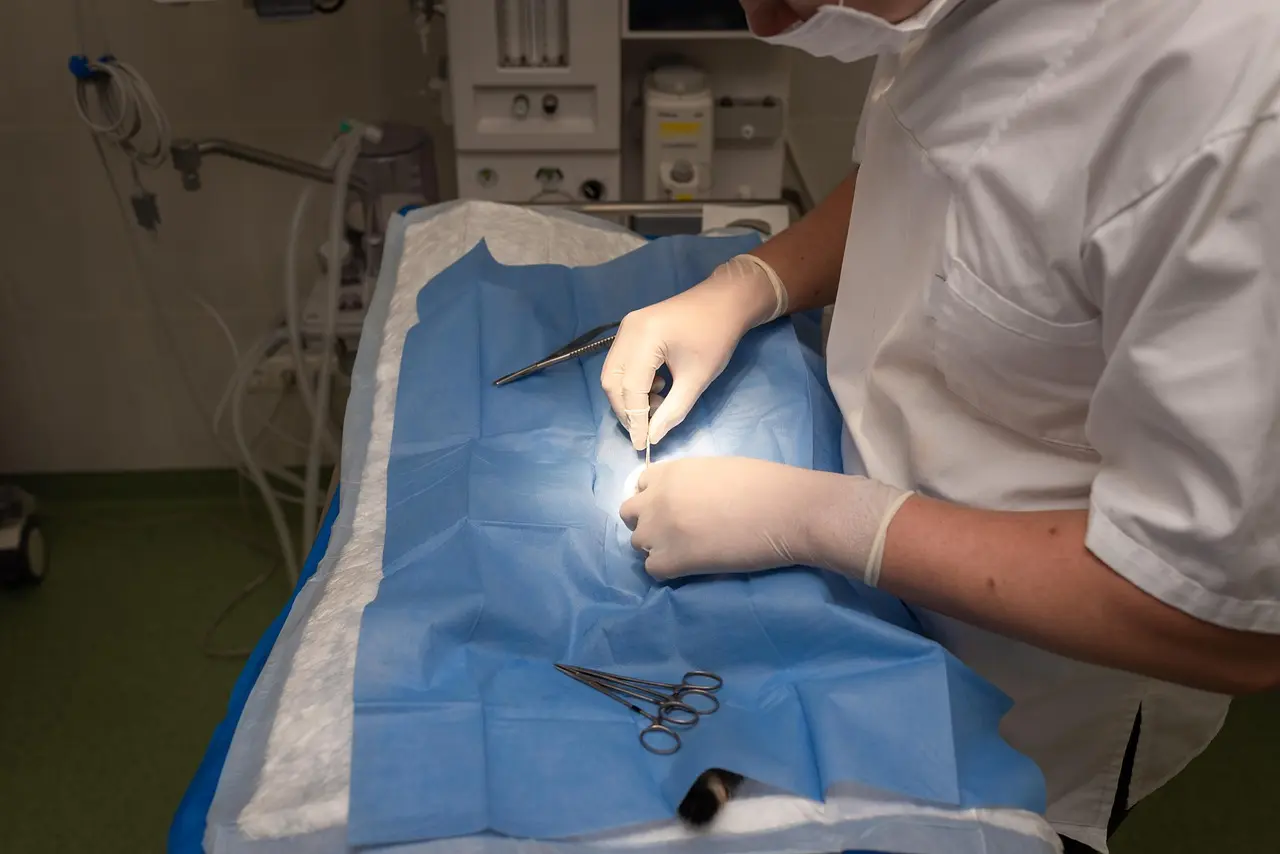Veterinary Medicine
The Faculty of Veterinary Medicine represents a unique center of specialized education, providing a solid foundation for building a successful professional career in this field. The “Veterinary Medicine” Study Program is aligned with Directive 2005/36/EC and complies with the Bologna Process framework, ensuring an integrated and modern curriculum.
This program aims to equip students with advanced knowledge and skills in animal health and food safety, preparing them to meet the current challenges of the profession.
The Veterinary Medicine program offers numerous employment opportunities, allowing graduates to work as independent specialists or to open their own veterinary clinics with the potential to secure stable and satisfactory income.
This study program aims to develop the skills and knowledge of students to become qualified professionals in the field of Veterinary Medicine, with a strong emphasis on modern practices and scientific research. In this context, the program seeks to:
• Educate students in identifying and understanding the major animal pathologies, including zoonotic diseases that have a direct impact on public health and the environment.
• Develop human capacities in the use of advanced and innovative diagnostic techniques, ensuring accuracy in the detection and treatment of animal diseases.
• Prepare professionals capable of performing detailed clinical examinations and interpreting case histories and clinical signs, by integrating theoretical knowledge with best field practices.
• Knowledge of breeding methodologies, genetic improvement, and animal nutrition, promoting sustainable development of animal production and welfare.
• Build competencies in evaluating preventive measures, hygiene standards, and the quality of animal-derived products, in alignment with international food safety regulations.
• Train specialists capable of ensuring and monitoring food safety across the food chain, embracing the modern concept of "One Health" and the essential role of veterinary medicine in public and environmental health.
General Academic and Analytical Competencies
Graduates of this program will be able to:
• Accurately interpret clinical data, diagnostic images, and laboratory test results.
• Solve complex situations based on the ability to logically and systematically assess clinical cases.
• Provide prompt and appropriate assistance based on clinical evaluation of animals.
• Implement various vaccination protocols according to species.
• Interpret basic statistical data in clinical and epidemiological studies.
Professional and Specialized Competencies
Students will be able to:
• Apply ethical principles in veterinary medicine, respecting humane treatment and animal welfare.
• Conduct anamnesis and examination of various body systems.
• Administer anesthesia and perform surgical and medical procedures accurately and safely.
• Perform artificial insemination and determine pregnancy in animals.
• Carry out ante-mortem and post-mortem inspections of animals.
• Differentiate between acute and chronic inflammation.
• Distinguish between localized and generalized lesions.
Interdisciplinary and Employable Competencies
Students will be able to:
• Understand the interconnection between human, animal, and environmental health in accordance with the “One Health” approach, collaborating with medical doctors and public health professionals.
• Apply veterinary knowledge to address risks from global pandemics originating from animals.
• Actively participate in initiatives for the control of zoonoses, epidemiology, and biosafety, ensuring herd health.
• Manage veterinary businesses financially by balancing costs and profits.
• Take part in interest groups or policy commissions for drafting and implementing laws and regulations in the field of veterinary medicine.
• Conserve wildlife and protect biodiversity and related ecosystems.
Graduating in Veterinary Medicine opens a wide range of professional opportunities for students,
both in the public and private sectors, domestically and internationally.
Graduates are well-prepared to pursue careers in:
- Veterinary clinics for small and large animals;
- Agricultural farms and animal breeding centers;
- Government institutions for veterinary control and public health;
- Food safety agencies and veterinary inspectorates;
- Diagnostic and research laboratories;
- International organizations such as FAO, WHO, OIE, etc.;
- The pharmaceutical sector;
- Academic careers and scientific research in universities and research institutes.
Additionally, the program provides a solid foundation for
further postgraduate studies in specialized fields such as veterinary medicine, biomedical sciences, epidemiology, and veterinary public health management.
